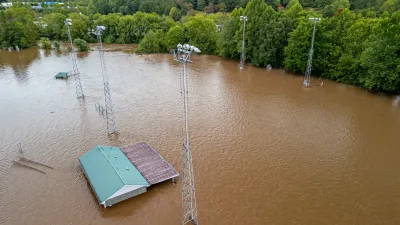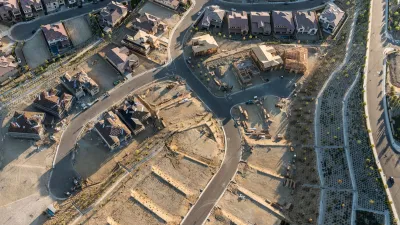With the costs of rebuilding after natural disaster in the U.S. escalating (now estimated at $50 billion a year), David R. Conrad and Edward A. Thomas argue that scant resources can be better spent on mitigation rather than rebuilding in place.
"Although climate change may be making the occurrence of major storms and floods more frequent, poor planning and bad development decisions are making disasters more expensive," say Conrad, an independent consultant on federal water resources policy, and Thomas, president of the Natural Hazard Mitigation Association.
"The government does not and should not dictate where people can live, own property or operate businesses. But policymakers could reduce the cost of disasters by investing more in natural-hazard mitigation and by implementing measures to discourage development of at-risk areas," argue the authors. "Our research estimates that if the government pursued these policies, it could save some $40 billion over the next decade."
"The goal should be to use federal money to prevent disasters, not merely to clean up afterward. Of course the government should continue to support Americans who are the victims of natural disasters, but we also need to help keep them safe from the next one. An effective way to reduce the cost of such events is to take active steps before a disaster even occurred."
FULL STORY: U.S. needs a better disaster plan

Planetizen Federal Action Tracker
A weekly monitor of how Trump’s orders and actions are impacting planners and planning in America.

Chicago’s Ghost Rails
Just beneath the surface of the modern city lie the remnants of its expansive early 20th-century streetcar system.

San Antonio and Austin are Fusing Into one Massive Megaregion
The region spanning the two central Texas cities is growing fast, posing challenges for local infrastructure and water supplies.

Since Zion's Shuttles Went Electric “The Smog is Gone”
Visitors to Zion National Park can enjoy the canyon via the nation’s first fully electric park shuttle system.

Trump Distributing DOT Safety Funds at 1/10 Rate of Biden
Funds for Safe Streets and other transportation safety and equity programs are being held up by administrative reviews and conflicts with the Trump administration’s priorities.

German Cities Subsidize Taxis for Women Amid Wave of Violence
Free or low-cost taxi rides can help women navigate cities more safely, but critics say the programs don't address the root causes of violence against women.
Urban Design for Planners 1: Software Tools
This six-course series explores essential urban design concepts using open source software and equips planners with the tools they need to participate fully in the urban design process.
Planning for Universal Design
Learn the tools for implementing Universal Design in planning regulations.
planning NEXT
Appalachian Highlands Housing Partners
Mpact (founded as Rail~Volution)
City of Camden Redevelopment Agency
City of Astoria
City of Portland
City of Laramie





























